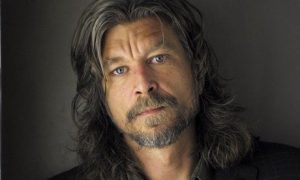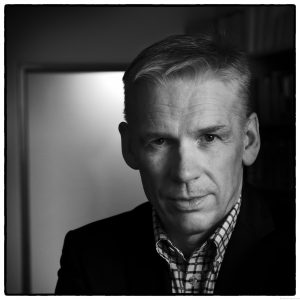NonfictioNOW: Boðsfyrirlesarar og ráðstefnukall
Alþjóðlega ráðstefnan NonfictioNOW verður haldin í Reykjavík 2.–4. júní 2017 og verður þar fjallað um óskálduð skrif af ýmsu tagi. Búist er við 400–500 gestum og að málstofur verði ekki færri en 60. Aðalfyrirlesarar koma úr ýmsum áttum og eiga það sameiginlegt að hafa verið mikið í umræðunni undanfarið. Þau eru:
Gretel Ehrlich er höfundur 15 bóka, þ.á m. verðlaunabókarinnar Solace of Open Spaces. Af öðrum bókum hennar má nefna This Cold Heaven, Seven Seasons in Greenland og hennar nýjustu bók, Facing the Wave, sem hlaut PEN USA verðlaunin fyrir óskáldað efni. Verk Ehrlich hafa verið birt í mörgum virtum tímaritum, s.s. Harpers, The New York Times Magazine, Time, Life og The National Geographic.
Wayne Koestenbaum er m.a. höfundur óskálduðu bókanna Humiliation, Cleavage: Essays on Sex, Stars, and Aesthetics og The Queen’s Throat: Opera, Homosexuality, and the Mystery of Desire sem var tilnefnd til National Book Critics Circle verðlaunanna. Hann hefur einnig skrifað tvær skáldsögur og ort ljóð.
 Karl Ove Knausgaard er Norðmaður sem hefur vakið verulega athygli fyrir sex binda ævisögulega skáldsögu, Min Kamp. Þar þurrkar hann út mörkin milli óskáldaðs og skáldaðs efnis og hafa sumir gagnrýnendur sagt að þessi verk hans séu meðal merkilegustu bókmenntaverka 21. aldar.
Karl Ove Knausgaard er Norðmaður sem hefur vakið verulega athygli fyrir sex binda ævisögulega skáldsögu, Min Kamp. Þar þurrkar hann út mörkin milli óskáldaðs og skáldaðs efnis og hafa sumir gagnrýnendur sagt að þessi verk hans séu meðal merkilegustu bókmenntaverka 21. aldar.
Maxine Beneba Clarke kemur frá Ástralíu og þykir vera með áhugaverðustu höfundum sem fram hafa komið á undanförnum árum. Hún er er þekkt fyrir að vera talandi skáld og er höfundur margverðlaunaðs smásagnasafns, Foreign Soil. Á þessu ári er svo von á ævisögu sem margir bíða spenntir eftir, The Hate Race.
Ráðstefnukall hefur nú verið sett í loftið og rennur frestur til að senda inn hugmyndir að málstofum út 31. ágúst 2016. Senda má inn hugmyndir í gegnum þessa vefslóð: https://nonfictionow.submittable.com/submit. Hér fyrir neðan má sjá ráðstefnukallið sjálft.
Call for panels
Suggested topics include, but are not restricted to, explorations of:
· nonfiction in translation
· nonfiction as translation
· nonfiction genres and their boundaries and tensions, including but not limited to: essay (personal, narrative, lyric, collage, interdisciplinary, etc.); memoir; immersion writing; history; biography; long-form journalism; travel writing; food writing; nonfiction poetry; sports writing; hybrids of fiction and nonfiction
· non-traditional forms of nonfiction, including but not limited to: performance, documentary, radio, video, hypertext, programmable media and graphic forms
· regional, national, and/or international characteristics and issues that are expressed through nonfiction genres
· threads of influence, style, and discourse, with a focus on important authors or on historical/cultural/theoretical trends
· the poetics of nonfiction
· representations of self and other in nonfiction
Please note:
· We especially encourage international and culturally diverse panels.
· We encourage panels conceived as lively, discursive, playful and interactive – as against readings of a succession of individual papers.
· Individuals may appear on up to 3 panel proposals and may present on 2. If all 3 are accepted, they will have to drop off 1 of them.
· The conference cannot fund any presenters, but we will provide travel tips to make the trip more affordable.· After successful panels have been announced, we will encourage meetups on Facebook’s Friends of NonfictioNOW page (https://www.facebook.com/groups/129840321129/), so that people without a panel can find one, and panels with cancellations can fill them.
· To help facilitate international diversity, we will give preference to 3–4 member panels that indicate their willingness to include additional panellists.
· After final panel line-ups are settled, it will be the role of each panel Chair to finalise, confirm and coordinate panels, as well as provide final panel information for the conference program.
· Bear in mind when proposing discussion topics that after panel acceptances, we will open up a call for roundtable presentations (in Icelandic, húslestur), or fireside chats on:
o Truth in nonfiction
o Translation
o Teaching
o Hybrid and multimedia forms
All proposals should include a panel title, 150-word précis, 150-word statement of merit, and 50-word, program-ready biographical note for each participant by 31 August 2016
